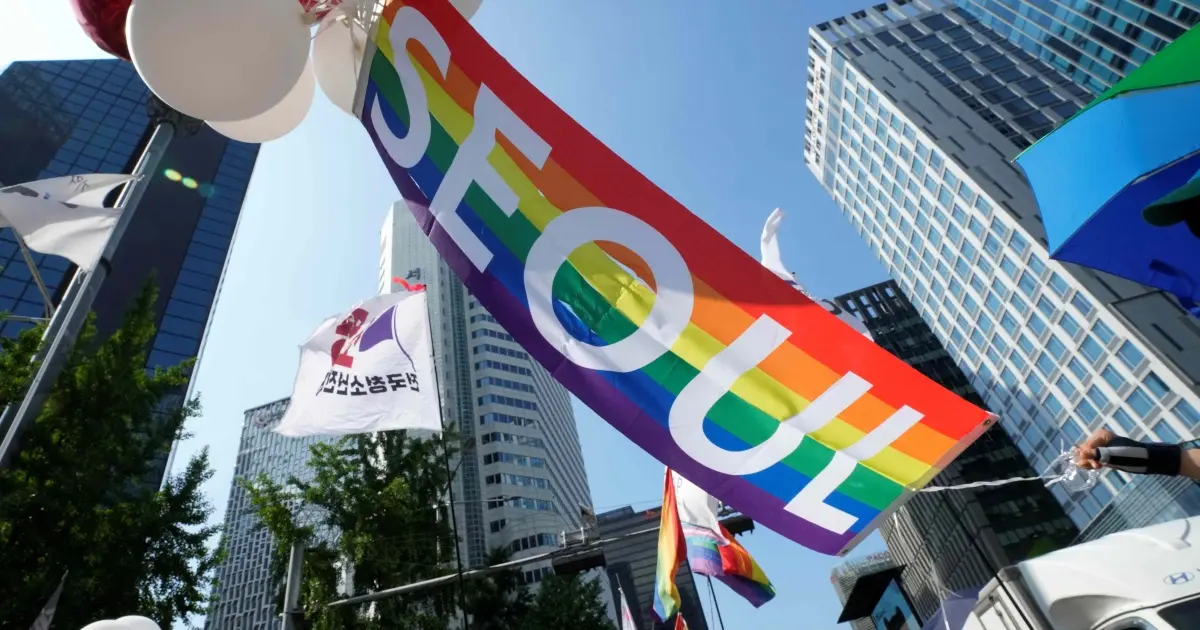South Korea’s Overseas Adoption Practices Under International Scrutiny

The heart-wrenching story of Han Tae-soon, who spent over four decades searching for her daughter Kyung-ha, has brought to light the dark history of South Korea’s overseas adoption program. After being separated in 1975, Han finally reunited with her daughter, now known as Laurie Bender, in 2019. This reunion, however, has led Han to file a lawsuit against the South Korean government, alleging negligence in the illegal adoption process that affected thousands of families. As the country grapples with its past, many others are coming forward with similar stories of loss and injustice.
A Long Search for a Lost Daughter
Han Tae-soon’s last memory of her daughter Kyung-ha dates back to May 1975, when the young girl chose to play with friends instead of accompanying her mother to the market. Upon returning home, Han discovered her daughter had vanished. For 44 years, Han tirelessly searched for Kyung-ha, visiting police stations, orphanages, and even appearing on television to plead for information. Her relentless pursuit took a toll on her health, yet she never lost hope. In 2019, a breakthrough occurred when Han connected with 325 Kamra, a group dedicated to reuniting Korean adoptees with their birth families through DNA matching. This led to a tearful reunion at Seoul’s airport, where Han embraced her daughter, now a middle-aged nurse living in California.
Kyung-ha’s story is not unique. She was reportedly kidnapped as a child, taken to an orphanage, and then illegally adopted in the United States. Han’s lawsuit against the South Korean government is part of a broader movement, as many others have come forward with allegations of fraud, illegal adoptions, and human trafficking linked to the country’s overseas adoption program. This program has seen approximately 170,000 to 200,000 children sent abroad since its inception in the 1950s, making South Korea a significant player in international adoptions.
The Dark Legacy of Adoption Practices
The overseas adoption program in South Korea began in the aftermath of the Korean War, when the country faced widespread poverty and a large number of orphaned children. Initially presented as a humanitarian effort, the program quickly evolved into a system where private adoption agencies operated with increasing autonomy. By the 1980s, the number of children being sent abroad surged, driven by demand from Western families seeking to adopt. However, this growth came at a cost, as many children were allegedly taken from their families under dubious circumstances.
A recent inquiry revealed that the South Korean government had committed human rights violations by failing to oversee the adoption process adequately. The report highlighted how private agencies exploited the system, leading to the mass export of children for profit. Critics have long questioned the ethics of sending so many children abroad, especially during a time of economic growth in South Korea. The inquiry’s findings have opened the door for more lawsuits against the government, with Han’s case set to be a landmark trial.
Government Accountability and Reforms
Experts argue that the responsibility for the abuses within the adoption system lies not only with private agencies but also with the South Korean government. The government played a crucial role in shaping adoption policies, setting quotas for overseas placements, and even halting some adoptions. Over the years, laws were rewritten to remove safeguards and judicial oversight, allowing for rapid adoptions without proper vetting of adoptive parents.
In response to the growing scrutiny, the South Korean government has begun to implement reforms aimed at addressing the past injustices. New laws have been introduced to tighten the screening process for potential adoptive parents and to improve tracking of birth parent data. These changes are part of a broader effort to ensure that all adoptions comply with international standards. However, the legacy of the past continues to haunt many adoptees and their birth families, as they navigate the complexities of their identities and histories.
The Ongoing Struggle for Connection
Despite their reunion, Han and Kyung-ha face significant challenges in maintaining their relationship. Living on opposite sides of the world, they struggle with language barriers, as Kyung-ha has forgotten much of her Korean, while Han has limited English proficiency. They communicate sporadically through text messages, but Han longs for a deeper connection. She dedicates hours each day to practicing English, hoping to bridge the gap between them.
Han’s determination to hold the government accountable reflects the pain and trauma experienced by many families affected by the adoption system. She believes that no amount of compensation can truly make up for the years lost. As South Korea confronts its past, the stories of individuals like Han and Kyung-ha serve as powerful reminders of the human cost of a flawed adoption system.
Observer Voice is the one stop site for National, International news, Sports, Editor’s Choice, Art/culture contents, Quotes and much more. We also cover historical contents. Historical contents includes World History, Indian History, and what happened today. The website also covers Entertainment across the India and World.
Follow Us on Twitter, Instagram, Facebook, & LinkedIn

